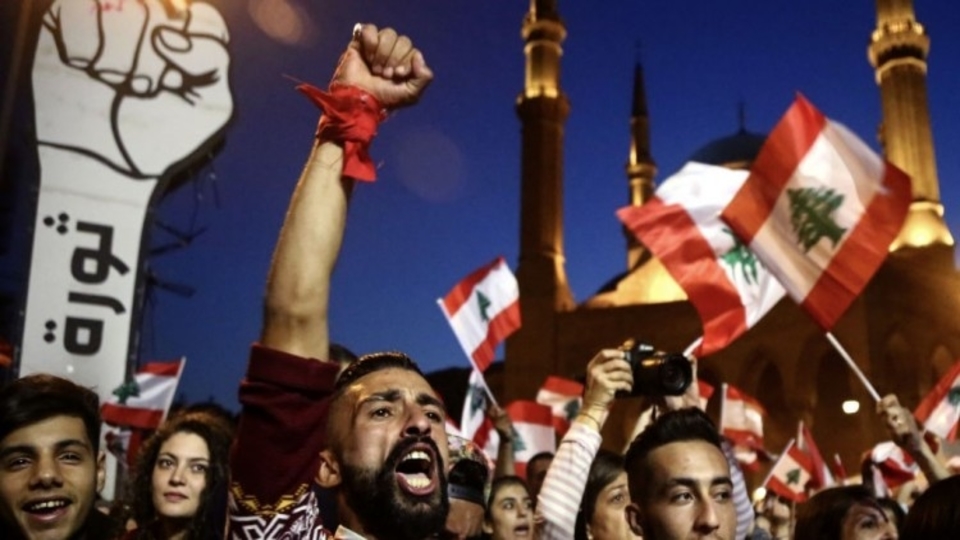The political climate in Lebanon is increasingly unstable as the future of the country remains undetermined following the resignation of Prime Minister Saad Hariri. Adding to the chaos, protesters backed by Hezbollah and Amal parties mobilized on the streets of Lebanese capital Beirut, on Tuesday, December 17, against the circulation of a video which allegedly insults the country’s Shia population. The protesters clashed with other protesters and the security forces.
Mobilizations were also held on Saturday December 14 to reject the possibility of the re-election of recently resigned prime minister Hariri. Thousands of protesters gathered and attempted to march to Lebanese parliament but they were stopped by security forces who fired tear gas and injured scores of people. The clashes continued on December 15 as well.
Saad Hariri was forced to resign on October 29 after weeks of popular protest against the widespread corruption, government inefficiency and sectarian quotas in the country. He has been serving as the caretaker prime minister since then and recently emerged as a possible candidate to retake the post officially.
Following the fresh protests over the weekend, major Christian parties in the country – the Free Patriotic Movement and the Lebanese Forces – announced that they will not support the candidacy of Hariri in the upcoming discussions to elect a new prime minister. Following the announcement, Hariri asked the president to further postpone the discussions till December 19. The Lebanese Forces had been a long-term ally of Hariri.
The discussions to elect a new prime minister were originally scheduled for December 9. President Michel Aoun first postponed them to December 16 following the withdrawal of the candidature of Samir Khatib. According to reports, Khatib withdrew his candidacy after his meeting with prominent Sunni cleric Sheikh Abdul Latif Derian who informed him that he would support Saad Hariri.
Lebanon has a system of consociationalism in which major posts in the government are reserved for a particular community/sect in order to avoid conflict among the diverse groups. According to the Taif accords (1989), the post of the prime minister is reserved for Sunnis, the president’s office for Christians and the speaker of the Parliament is to be from the Shia community.
Saad Hariri had vowed earlier that he will only return as the prime minister of a cabinet of technocrats. Protesters have been demanding the removal of all political elites and for the establishment of a technocratic government to tackle the economic issues in the country. The Lebanese economy largely survives on foreign loans and has one of the highest debt-to-GDP ratios in the world. The country has also seen rising rates of poverty and unemployment, along with the government’s failure to provide basic services to the people.
The demands for a technocratic government have, however, already been rejected by Hezbollah and Amal, major allies of Hariri, who insist on maintaining the political nature of the government. They have also rejected the demands to end the quota system.
Omar Deeb, who is responsible for International Relations in the Lebanese Communist Party, spoke to Peoples Dispatch. According to him, Tuesday’s sectarian mobilization was an attempt by Hezbollah and Amal to divert attention from the ongoing agitation against the ruling establishment. Deeb insists that the protests have gained momentum after the ruling elites failed to resolve the crisis in any credible way. He claimed that the clashes over the weekend were also a result of the involvement by forces controlled by the speaker of the parliament.





